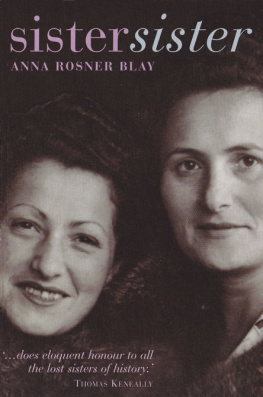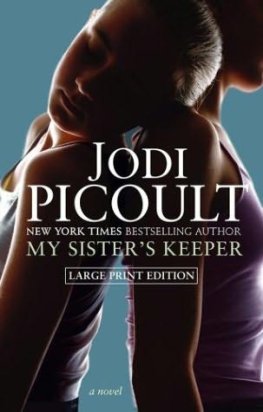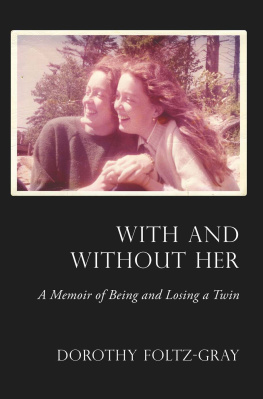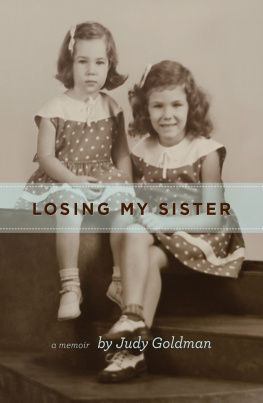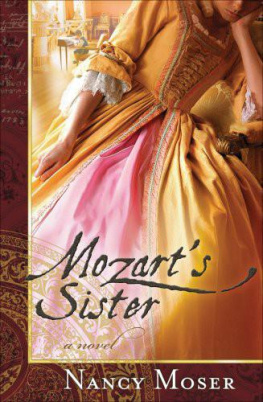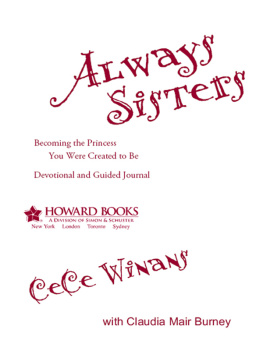Sister, Sister
Anna Rosner Blay

Sister, Sister is the vivid and intimate tale of two personable sisters who survive the great European catastrophe. Anna Rosner Blay interlaces the two accountsfascinating, whimsical, robust and horrifyingwith her own remembrance, playing with the unanswerable question: why were they so grossly imperilled, while I grew up in safety? In celebrating these two vigorously human sisters, the author does eloquent honour to all the lost sisters of history. Many will cherish this book.
T HOMAS K ENEALLY
Published by Hybrid Publishers
Melbourne Victoria Australia
Anna Rosner Blay 2012
First published by Hale & Iremonger, Alexandria, NSW
Australia 1998
This publication is copyright. Apart from any use s permitted under the Copyright Act 1968, no part may be reproduced by any process without prior written permission from the publisher. Requests and enquiries concerning reproduction should be addressed to
Hybrid Publishers,
PO Box 52, Ormond, VIC 3204.
www.hybridpublishers.com.au
Republished 2012
National Library of Australia Cataloguing-in
Publication data:
Author: Blay, Anna Rosner 1947
Title: Sister, Sister / Anna Rosner Blay
ISBN: 9781742981703 (ebook).
Subjects: 1. Rosner, Helena, 19242010
2. Gross, Joanna, 19141994
3. Holocaust, Jewish (19391945) Poland Biography
4. Holocaust survivors Australia Biography
5. Immigrant Australia Biography. I Title.
Contents
Foreword
The Holocaust experience has broken the hearts and ravaged the souls of many survivors, and beyond them, those of their children. Today a number of us, the adult children of survivors, are discovering our intimate and unique connections with that tragedy, vaguely sensing the impact of our parents experiences on our own lives. Obviously, we were not there, we did not have to face first-hand what our parents endured; and yet, in a sense, many of us feel as if we were there. How could this be?
Anna Rosner Blay, one of the growing number of second-generation writers, has managed, with an insiders knowledge, to convey the deep continuity of experience linking the generations, from her familys pre-war lives, shattered by the Holocaust, to her own.
In order to make explicit these often subtle undercurrents between the generations, she has had to negotiate a number of barriers. First, she needed to come to terms with her own heart, plumb the depths of her own soul, there to find and mirror her aunts and her mothers courage, pain and will to survive. Next, she had to retrieve and chronicle that transmitted past, culled from spoken words as well as from her fine attunement to the unspoken signals from the two grieving women. Finally, she had to transform with love and care those collected accounts of fragmented lives into this remarkable book.
Such a feat is itself worthy of praise, but she went further.
Like Eva Hoffmans Lost in Translation, Mark Bakers The Fiftieth Gate and Anne Karpfs The War After, Anna Rosner Blays Sister, Sister is a masterful blend of family history and a deeply personal act of commemoration. By using snippets of autobiography and fleeting, poignant self-references, she has managed to hint at those states of wordless anguish and conflicting emotion that can exist between the generations. One senses the silent inner struggle in her quest for a separate identity, an identity not subdued by and so entangled with the burdened identities of her mother and her aunt. Through all this, Anna Blay has managed to locate and convey her previously unsayable thoughts and experiences; in doing so, she has spoken of feelings shared by so many other members of the second generation.
Against the background of the lottery of life and death endured by her family, Anna Blay makes us subtly but irrefutably aware that the Holocaust is not a thing of the past. In sharing briefly so much of her personal life, she creatively and convincingly charts those elusive links between her aunts and her mothers past and the different phases in her own life.
She describes feelings and experiences that echo with the past, and daily resonate in her very being: her dread when visiting a doctor, the shivers of anxiety evoked by symbols of war, her nightmares, guilts, her yearnings, her dawning knowledge of what she is not meant to know. Each echo is transported across the barriers of time and space, transmitted from one generation to the next, to the daughter who, with the immediacy and intensity of personal ownership, relives them as if part of her own past.
A gentle, lucid and keenly observant writer, Anna Rosner Blay has brought her deep sense of family commitment and commemorative instinct to add this vital personal dimension to the solemn subject of her familys history. The descriptions are imbued with a deceptive simplicity, yet they yield penetrating insights into the transmission of parents experiences to the second generation. This process, skilfully captured in her book, located somewhere between literature and psychology, has been described as the phenomenon of transposition.
Professor Judith Kestenberg, the noted authority on the psychological impact of the Holocaust on child survivors and their children, has used the term to denote this unique form of transmission across the generations. Specifically, it refers to the process by which children of survivors experience aspects of their lives, including some symptoms at clinical levels of intensity, severity or duration, as if they had themselves lived through the Holocausta feeling of it happened to me.
Through the pages of this moving book, we observe Anna in the process of gradually untangling her entwined self, almost an act of self-redemption. This hard-earned freedom from the unknowns of her childhood, transformed from fleeting recognitions into words and eventually into the precious sentences which convey the essence of her struggle, fills us with inspiration and hope as she comes to terms with her familys previously unbearable past.
So, out of the despair and blackness there emerges a growing sense of celebration; of a family, having run the gauntlet of the bestiality of Nazism and beyond, sustained by faith, surviving, bearing witness. The aunt and the mothersister, sistercelebrate the beginning of a new life, the birth of a son and daughter, a daughter whose legacy it will be to chronicle the fragments of a culture, a way of life, and the God-given resilience shown by members of her family who, despite the odds, triumphed over the atrocities that confronted them.
Miraculously, they resumed their lives, rebuilt their homes and, through hard work, secured a future. Such lives are lived by a few, remarkable people. A generation later, the story is retold by a survivors child who, in telling it with such courage and grace, produces a work that also verges on the miraculous.
Dr George Halasz
Melbourne, 1998
Prologue
I carefully collect the details of the stories, and as I arrange and weave them together the random threads begin to form a design. The cloth is intricately woven, with recurrent patterns emerging. But when I go to spread it out before me, like a delicately crocheted tablecloth, I see it is full of spaces. These are blanks that can never be told, can never be put into words. Or even if words are found they can only be approximate, providing a pale suggestion of what really occurred hour after hour, in the days and years of those born before me.

